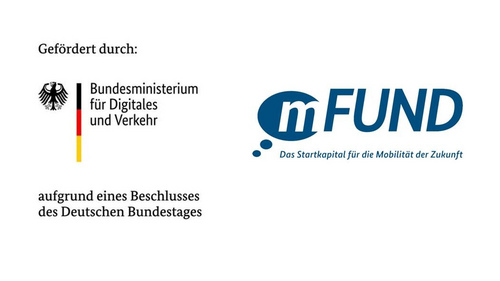
Since October 2021 measures have been developed for the targeted control, integration and management of micromobility services in the city of Regensburg, Germany. These measures intend to increase the acceptance of mobility alternatives and increase the modal shift potential.
The ZISteM project is specifically investigating the extent to which sharing e-scooters can represent an effective and environmentally friendly mobility solution in combination with other modes of transport.
An initial citizen survey in 2020 revealed that the attitude of Regensburg citizens was very divided. There was a particularly negative attitude in the +45 age group.
The following wishes were expressed to increase acceptance: lower costs, safe places to ride and park, a proven environmental benefit, greater availability of the scooters, and expansion of the business area.
Therefore, the following measures are in progress:
Selected test users are able to use the e-scooters free of charge in a pilot phase in 2022/23. During this time, the aim is to specifically test whether e-scooters represent a sustainable mobility alternative to cars by coupling them with public transport.
First results will be published after the pilot phase in 2023.
To the image film about the Micromobility project ZISteM.
List of project partners:
The Cluster Mobility & Logistics co-initiated the project.
The project starts with an inventory of the status quo regarding existing micromobility services as well as general mobility offers and their current networking in the city. Afterwards, possible theoretical measures for integration and control are identified and scenarios will be developed The focus is on data. These theoretical measures are examined for feasibility in the city of Regensburg. The result is a catalog of requirements, on the basis of which the concrete measures for prototypical implementation are compiled. There is an examination of the requirements according to subcategories:
The requirements for the test area and the selection of the pilot area are defined together with the city. During the piloting, the integration and control options are tested and monitored under real conditions. In an impact analysis, the measures taken are assessed according to economic, social and ecological aspects. These include, for example, user behavior, service optimization, potential for modal shift, as well as the calculation of environmental impacts - especially with regard to CO2 reduction.
Finally, the transfer and derivation of recommendations for action for comparable cities and further innovative mobility offers is planned.
In this project, micromobility refers to mobility with electrically powered micro and light vehicles. The so-called electric micro-vehicles include e-trekkers or e-scooters, e-light vehicles. In the meantime, the range of vehicle models is very diverse and extends from electric one-wheelers and two-wheelers to e-treadrollers (also three-wheeled) and four-wheeled micro-vehicles.
The vehicles are characterized by their compact and lightweight design and have been designed primarily for individual passenger transport. These vehicles are primarily used to cover short to medium distances. Due to their small size, they can offer advantages over, for example, passenger cars in inner-city environments. Significant potential is seen in the first and last mile in combination with public transport.

The "ZISteM" project is funded by the German Federal Ministry of Digital Affairs and Transport.
Project volume: 1.137.428 Euro with a funding share of 56% by the Ministry
Project duration: 10/2021 – 03/2024.
Project coordinator: Siemens AG, Munich
Project website: www.zistem.de
You do want to learn more about the project?
Contact: Anne Häner, anne.haenertechbase.de!